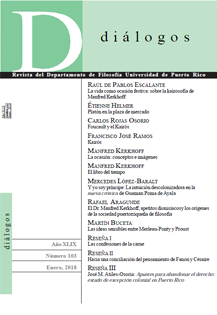Abstract
The essay focuses on the figure of the «lector philosophus», to whom the Tractatus theologico-politicus is explicitly addressed: not the contemplative and isolated wise man, nor the philosophers of the future, with whom one can engage in an esoteric debate on truths that are disguised and muffled between the text lines, but a varied cultural and social class abundantly present in the Netherlands at the time. An aristocracy of the mind (open to rational research, against dogmatism), of the economy (free market, against the monopoly of large commercial companies), and of religion (tolerant and libertarian minority cults). It is a plurality of individuals that have to be educated to the definitive liberation from all theological prejudice, on the basis of that deistic «fides universalis» which Spinoza‘s biblical exegesis outlines in the first fifteen chapters of the treatise: a theology open to reason and intended to support, at the political level, the democratic-republican faction against the repressive authoritarianism of monarchy and official cults. On the other hand, the grand political and pedagogical design of the treatise preventively excludes the «vulgus», whose ignorance and superstitions irremediably put them in the hands of the Calvinist church and of the Orange family. However, the design of a democracy without «vulgus» will soon prove to be doomed to failure.Downloads
Download data is not yet available.

